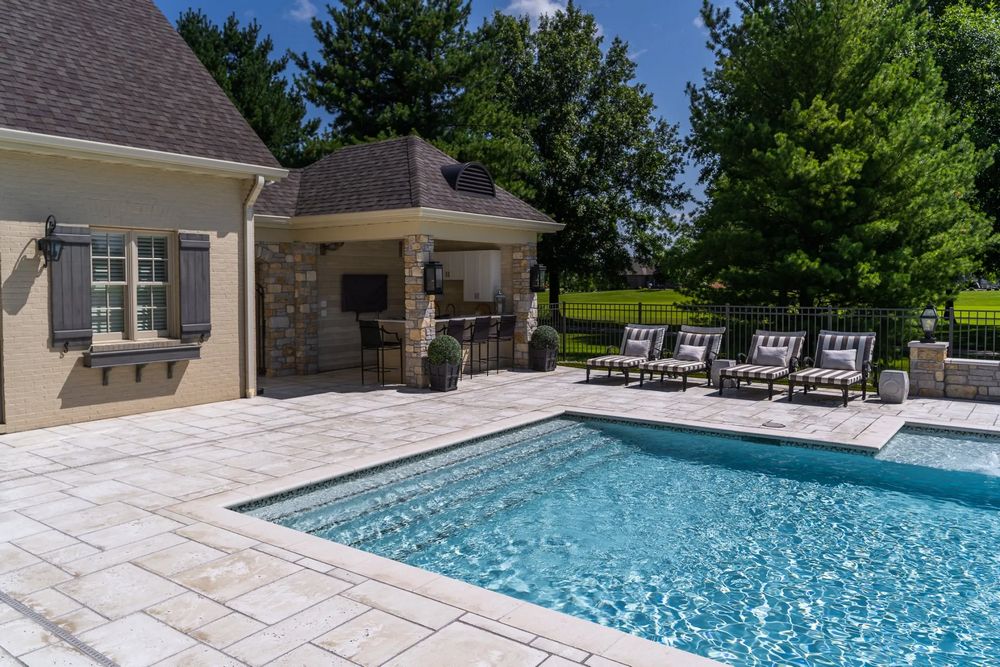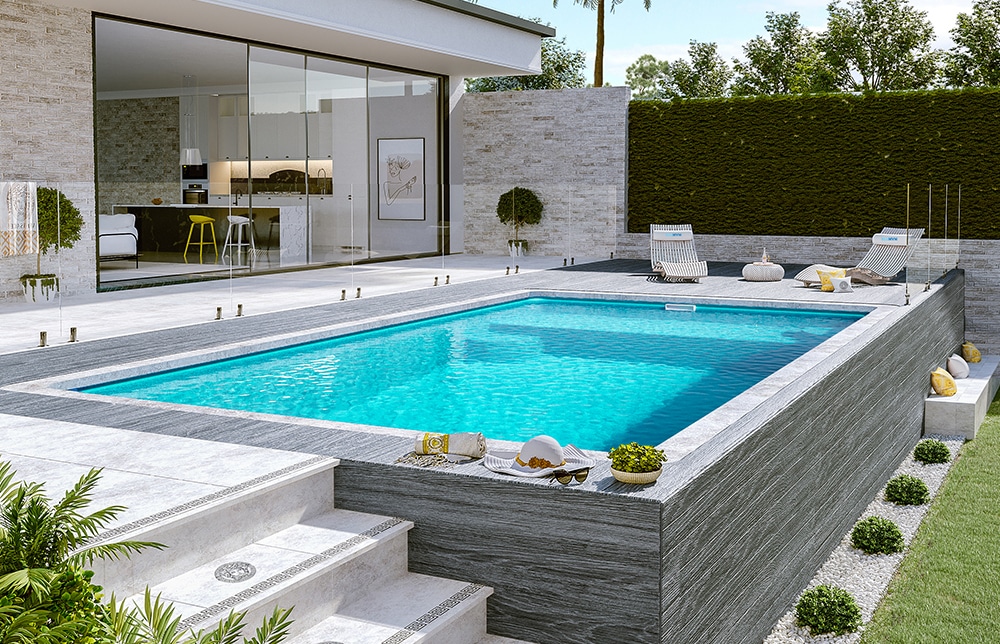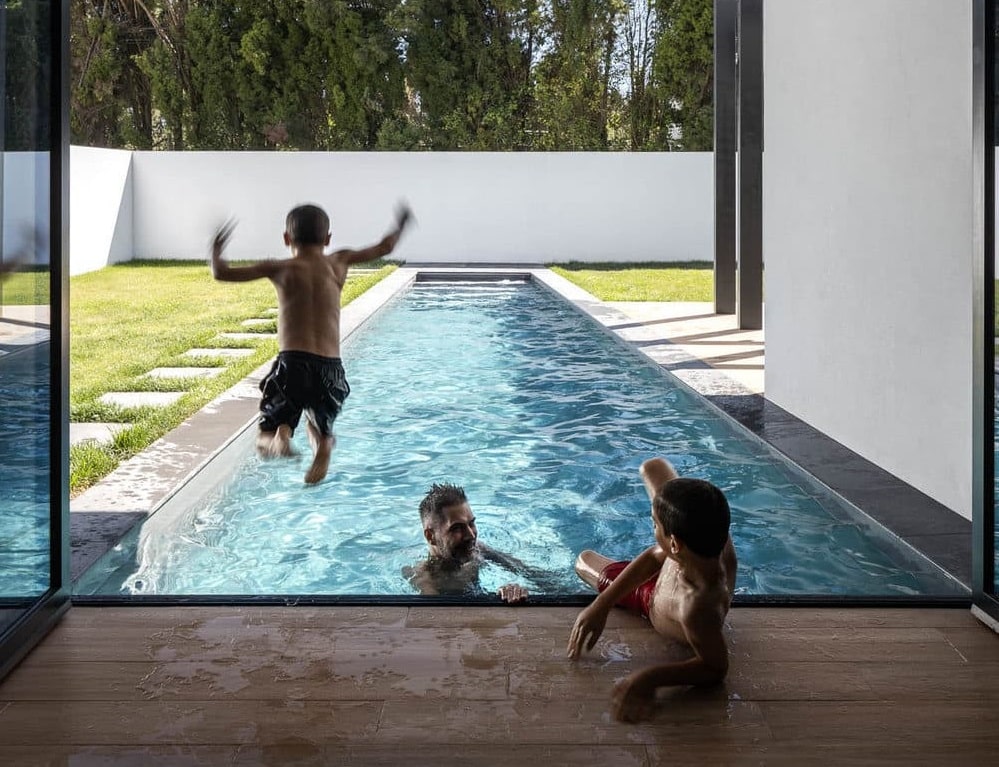Would it be so nice if you got your swimming pool in your backyard? Summer is here, and the thought of a refreshing dip in pool water is now waving at you. But what type of swimming pool are you looking for?
Let us help you answer that by giving you this comparison between the two primary types of pools. Could you have an in-ground or an above-ground pool?
What are the differences between In-ground and Above-ground?
When choosing the perfect pool for your backyard oasis, there are two main options: an inground pool or an above-ground pool. While both options can provide hours of summer fun, there are some key differences to consider.
You can definitely build your backyard oasis with the help of several pool-building companies. Knowing if it’s an n above-ground or an inground type you need is among the first things you must talk to your pool builders about.
Let’s take a look at each, first the inground pool.

What is an In-ground Pool?
This type is the most common that you often see both in pictures and in the physical world. They are the typical type of swimming pool among pool parks and resorts, and you can easily tell it’s inground because it is built inside the ground.
They have depths contoured deep beyond the surface of a space’s footing. So this one would have the decks at foot level where you can walk on them. Then you dip and go down inside the basin attached to a dugged-out-basin.

What is an Above-ground pool?
A pool built above the ground, hence the name, protruded over the ground surface. The decks need to be at a level with the footings. It will be constructed vertically and extended from the surface.
Design Differences
In-ground pools and above-ground pools can both be designed to fit your taste. However, its differences would come, of course, from how they are built from the ground.
The in-ground pool installers can design them with more emphasis on interior plastering, edge coping, and pool decking.
On the other hand, designing the above-ground will have you focus on its exteriors since the decks will go together with the pool basin exterior.
To design this, you will pay more attention to the type of material the exterior of the deck and pool basin will be built on. It’s worth taking note that both inground and above ground pool need pool decking for safety with spray texture to add more traction. Check out San Diego Concrete Coatings Specialists Inc who are experts in spray texture installation.
Cost Differences
Next is to look at their cost differences.
Inground pools are typically more expensive. Why? It is because you have to consider specific factors.
Let’s dig into them.
Cost Considerations for Inground Pools
The cost for in-ground pools would consist of the process from the ground up. The digging of the area will be the process that gives it more expenses.
Then you need to also pay for the hauling out of the soils and the debris. Next, you need to pay for the preparation for installing the pool coping. These are all for preparing the interior pool resurfacing for inground types.
Next, you need to consider the material for the pool surface. You got options from tiles, concrete, fiberglass, vinyl, pebbletec, to name a few.
Cost Considerations for Above-ground Pools
Above-ground pools are more affordable. Of course, it cuts off the cost of digging the ground and hauling the slabs and debris somewhere far. This makes the above-ground pool more cost-considerate to homeowners who do not need to use a pool for extravagance but for pure family enjoyment.
Initially, the price of a swimming pool built on top of the earth’s surface will depend on its dimension, composition, and layout.
You must also account for the expense of accompanying components like a pool lid, ladder, and purifying system.
You may need to flatten the land, implement groundwork, and seek professional aid to put it up. Besides the price of the pool itself, you must account for any landscaping necessary to bestow a picturesque outdoor space.
Moreover, it is essential to consider any continuing upkeep costs when formulating a financial plan for an above-ground pool. It is essential to acquire the chemicals required to maintain pure and balanced water, replace filters and pumps as necessary, and cover any repair costs that might be demanded.
Pool Upkeep
The final consideration will be the pool upkeep. These will also influence the pool’s cost and overall appearance and function.
Maintaining a swimming pool, regardless of whether it is above or in-ground, requires frequent attention to ensure the water is clean and secure. But, the maintenance requirements may differ according to the kind of pool.
Generally, in-ground pools have a less frequent need for upkeep than above-ground pools. This is because the filters and pumps of above-ground pools are usually smaller, thus needing more frequent cleaning and servicing.
Moreover, above-ground pools are more likely to gather debris and develop algae, requiring extra cleaning and chemical treatments.
On the one hand, above-ground pools are more cost-effective to take care of than those built into the ground.
They also possess fewer components that may need to be switched out periodically. Nonetheless, it is critical to know that upkeep charges may differ based on the pool and environment.
Summary of Points
Overall, both types of swimming pools need frequent maintenance to ensure the water is sanitary and safe for swimming. For any kind of preference, a professional builder of above-ground and in-ground pool installers takes on the job. Ask the experts at Heintzpool.com who can make pool building fun and make you feel comfortable.









